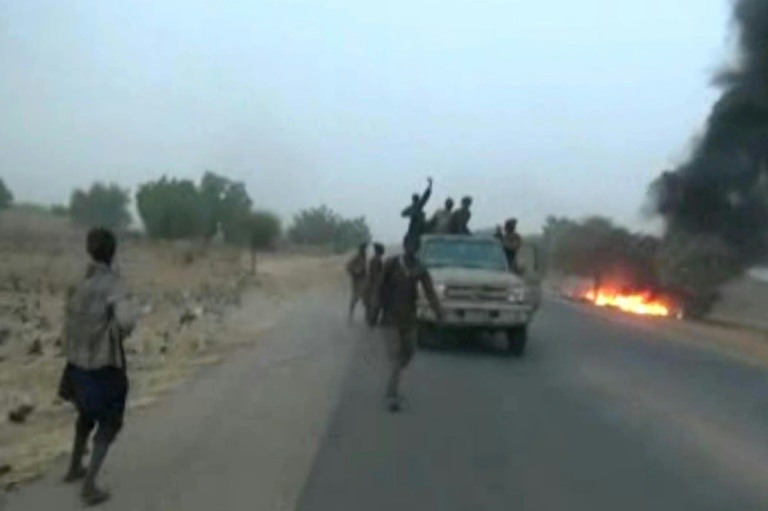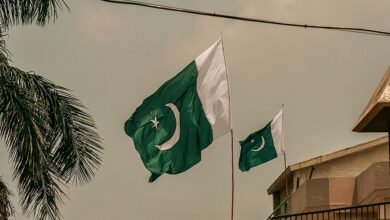
Three suicide bombers killed 19 people at a fish market in northeast Nigeria, civilian militia leaders said on Saturday, in an attack blamed on Boko Haram jihadists.
Friday’s deadly attacks came in the week that hundreds of Boko Haram suspects went on trial at civilian courts at a military base.
One fighter involved in the 2014 abduction of more than 200 schoolgirls from the Borno state town of Chibok was jailed for 15 years.
The suicide blasts happened at about 8:30 pm (1930 GMT) on Friday in Konduga, some 35 kilometres (20 miles) southeast of the Borno state capital, Maiduguri.
Babakura Kolo and Musa Ari, from the Civilian Joint Task Force (CJTF) assisting Nigeria’s military against the Islamists, said the bombers were all men.
“We have 19 dead and about 70 others injured… Two of the bombers attacked the Tashan Kifi fish market. Then four minutes later, a third bomber struck nearby,” said Kolo.
“The victims included 18 civilians and one soldier. The Tashan Kifi is an informal market which serves as an eatery, market and also hang-out for residents.”
 AFP / Sophie RAMISMap locating Konduga in northeast Nigeria, where three suicide attacks were carried out at about 8:30 pm (1930 GMT) on Friday
AFP / Sophie RAMISMap locating Konduga in northeast Nigeria, where three suicide attacks were carried out at about 8:30 pm (1930 GMT) on Friday
Ari said 22 of the 70 injured were in a critical condition, adding: “There is no question as to who did it: Boko Haram has targeted Konduga several times.”
There was no immediate comment from the military or the police in Borno state, which has borne the brunt of the violence in Boko Haram’s nearly nine-year insurgency.
At least 20,000 people have been killed and more than 2.6 million others made homeless since 2009. Nigeria’s military and government maintains the group is a spent force.
But suicide attacks and raids persist, with civilians in hard-to-reach rural areas and outlying towns at risk.
On January 31, two female suicide bombers blew themselves up at Mandarari village, near Konduga.
– Trials and reward –
The blasts happened shortly after another bomber killed four and injured 44 at a displaced persons’ camp in Dalori, 22 kilometres away on the same road to Maiduguri.
A fourth bomber also blew herself up outside the camp.
The Nigerian officer in charge of operations against Boko Haram, Major General Rogers Nicholas, on Wednesday said the Islamic State group affiliate was “in disarray”.

Operations since the start of this year had flushed them out of their stronghold in the Sambisa Forest area of Borno state, which had previously been cleared in December 2016.
Nicholas called the jihadists “callous” for “forcefully using the most vulnerable in our society… as IED (improvised explosive device) couriers”.
On Tuesday, the army claimed Boko Haram leader Abubakar Shekau was “running for his dear life” because of military action against his hideout.
Army spokesman Brigadier General Sani Usman said Shekau was “desperately trying to escape… disguised as a woman” wearing a hijab to avoid detection.
The military said it would give a reward of three million naira ($8,310, 6,697 euros) for “credible information” leading to his arrest.
In 2012, the army had said it would give a 50 million naira reward.
The United States, which considers Shekau an international terrorist, has said it would offer up to $7 million for information on his whereabouts.




